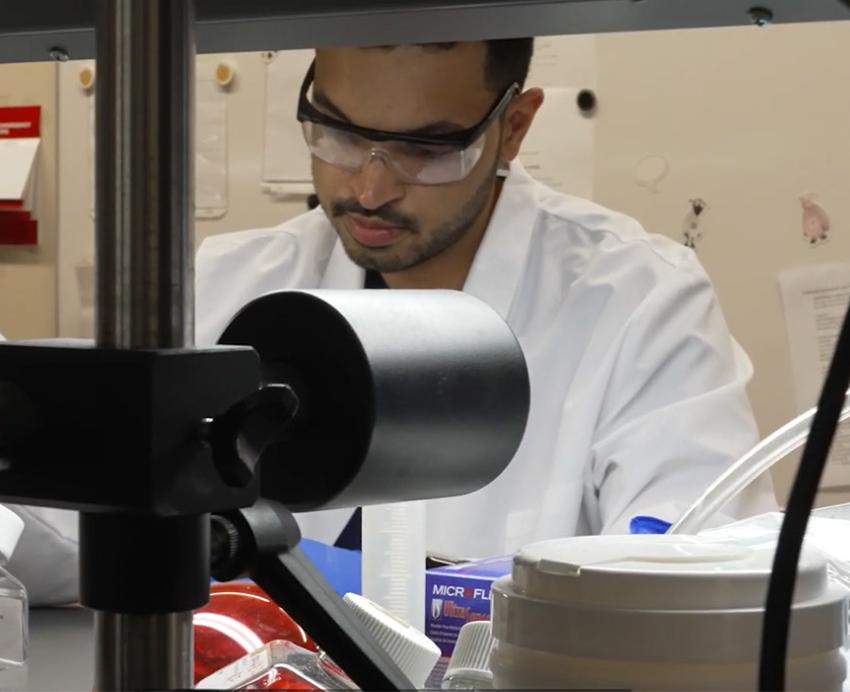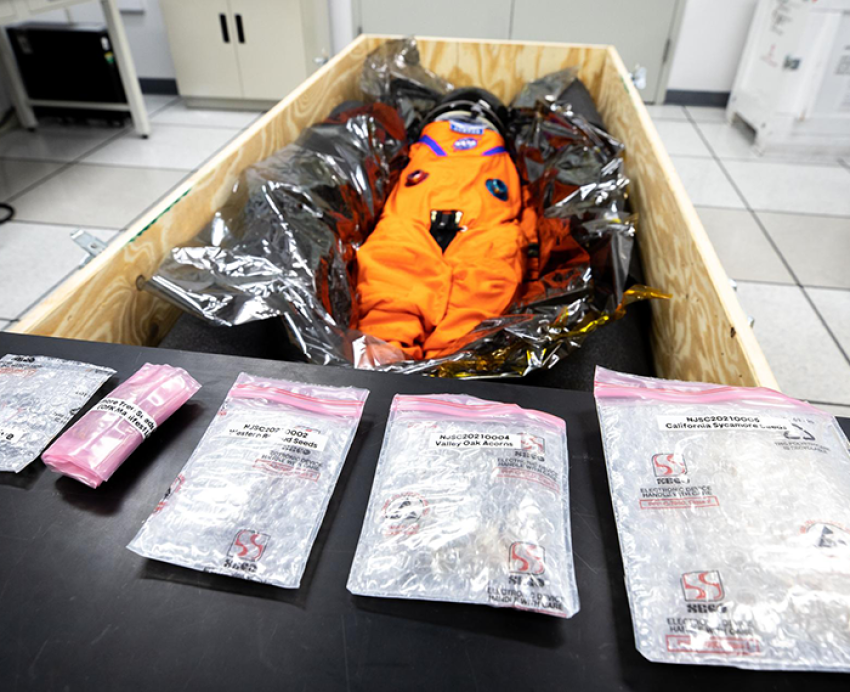Features & Articles
Filter By

How this Pitt duo’s startup plans to attack the ‘tricky beast’ that is cancer
A platform developed by Jason Lohmueller and Alex Dieters could allow immunotherapies to be delivered to tumors with more flexibility and precision.

This social scientist turned entrepreneur supports Black parents with an innovative program
Parenting doesn’t come with a manual, but it does come with community, thanks to James Huguley.

This Pitt medical student wants to make tests for cerebral aneurysms simpler and more effective
Adi Mittal balances research, classwork and business as a student and startup founder.

Peng Liu is unraveling new reactions — and new ways of working together
With a pair of Nature papers among a flurry of recent studies, the computational chemist is on a hot streak that shows no sign of stopping.

How a fish could lead to new hope for treating persistent wounds
An unexpected discovery by School of Medicine Professor Michael Tsang led to his startup Zegenex — and a new way to treat serious wounds.

Pitt’s first signing day for startups celebrated a milestone for researcher-entrepreneurs
Five new companies founded by Pitt researchers aim to improve wound care, cancer immunotherapy, chronic pain care and more.

This Pitt grad student is creating a historical map of the Hill District, one photo at a time
Landscape photographer Kale Serrato Doyen’s PhD research is inspired by Teenie Harris and informed by her work documenting Latino spaces in her Michigan hometown.

Science editor Holden Thorp is Pitt’s 2024 winter commencement speaker
Hear from the chemist, former UNC chancellor and pharmaceutical executive Dec. 18 at the Petersen Events Center.

A recent Pitt study sheds light on the correlation between cholesterol and Alzheimer’s disease in women
Epidemiologist Samar El Khoudary found it’s a matter of HDL quality over quantity in women entering menopause.

Look to the western skies this month to see a once-in-a-lifetime comet
We talked with Edward Potosky about how to see Tsuchinshan-ATLAS, which won’t be back for 80,000 years.

Pitt scientists validated a new panel for blood biomarkers of Alzheimer’s
Senior author Thomas Karikari hopes the test could help physicians capture the disease’s multifaceted nature and develop an approach for early intervention.

This Pitt program equips students with the skills to be impactful disability advocates
The Disability Studies Certificate prepares students to incorporate accessibility and inclusion into their fields, from digital design to health care.

Pitt’s undergraduate nursing program is No. 4 in the nation, according to U.S. News & World Report
The University also joined the ranks of Most Innovative Schools in the 2025 Best College rankings.

Hillandale Farms family giving tops $45M with the creation of the Orland Bethel Musculoskeletal Research Center Biobank
The specimen repository ultimately will help develop treatments for painful conditions like arthritis that affect millions globally.

Humans aren’t the only creatures to make nostalgic returns home
In honor of Pitt Homecoming, we spoke with Professor Corinne Richards-Zawacki about natal philopatric amphibians, which habitually return to the place where they were born to reproduce.

¿Pero por qué?
Gretchen Rosado’s childhood curiosity led her to science. A Spanish-speaking lab at Pitt just may lead her home.

A moon tree is taking root near Pitt’s historic Allegheny Observatory
A seed that circled the moon with NASA will be planted in Riverview Park. Celebrate its arrival on Oct. 6.

A construction milestone for BioForge, Pitt’s biomanufacturing innovation facility
In a topping-off ceremony, leaders celebrated placing the last beam of a facility that promises to help push Pittsburgh into the life sciences century.

This professor’s insect collection will help measure ecosystem health across the continent
Mary Mulcahy spent the summer trapping, sorting, weighing and tracking key species around Bradford.

People eating beef are less likely to live near the industry’s pollution, Pitt researchers found
The National Science Foundation study is the first to map county by county the impact of nitrogen from the U.S. cattle supply chain.




